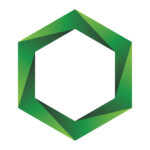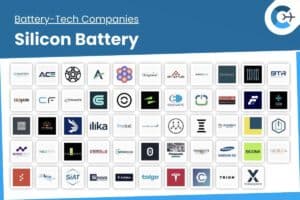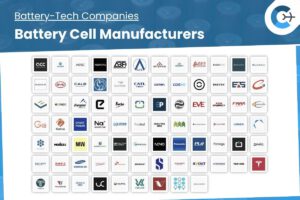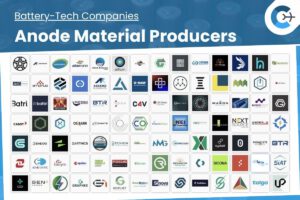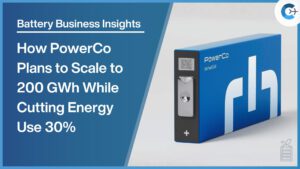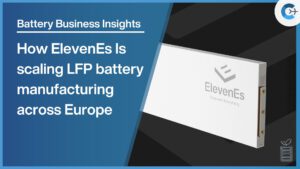South Korea’s leading battery manufacturers are expanding their product lines to include prismatic cells, a battery format predominantly supplied by China’s CATL, the world’s largest battery producer. Historically, Samsung SDI was the sole South Korean supplier of prismatic batteries, but rising global demand has motivated LG Energy Solution and SK On to develop and offer this format as well.
Prismatic cells, encased in aluminum cans, are renowned for their durability and resistance to external impacts. Their rigid structure simplifies assembly at the module and pack levels, enhancing production efficiency.
SNE Research reports that prismatic cells represented 65% of the global battery market in the first quarter of 2023, up from 57% in 2018. The format is especially popular in Europe, with automakers such as BMW, Mercedes-Benz, Stellantis, and Volvo adopting it. Volkswagen has also announced plans to have prismatic cells comprise 80% of its battery supply by 2030. In 2023, Europe’s battery usage was 49% prismatic cells, 35% pouch cells, and 16% cylindrical cells.
On December 3, LG Energy Solution revealed a joint development agreement with General Motors (GM), the largest automaker in the United States, to co-develop prismatic batteries for GM’s next-generation electric vehicles. This collaboration makes LG Energy Solution the only company offering all three major battery formats: pouch, cylindrical, and prismatic cells.
“This agreement strengthens our product and customer portfolio, enabling more strategic responses as the EV market transitions to a phase of significant growth and increasingly diverse customer needs,” an LG Energy Solution representative stated.
Samsung SDI has secured supply agreements for prismatic cells with both Hyundai Motor Group and GM. The company is reportedly set to supply prismatic batteries for Hyundai’s luxury Genesis GV90 model. Additionally, Samsung SDI plans to invest $3.5 billion in a joint venture with GM in the U.S., aiming to commence production of premium P6 prismatic batteries by 2027. These batteries will have an initial annual capacity of 27 GWh, potentially expanding to 36 GWh through further negotiations, according to Kim Jong-sung, head of Samsung SDI’s Management Support Office, during the Q3 2024 earnings call.
SK On, traditionally focused on pouch cells, completed the development of its prismatic battery technology in early 2023 and is gearing up for mass production. The company is expected to supply prismatic cells to China’s Zhejiang Geely Holding Group, which owns brands like Geely Auto, Volvo, Polestar, and Lotus. SK On has already secured a supply agreement for high-nickel NCM batteries for Polestar’s upcoming Polestar 5, scheduled for production in 2025.
“With the development of our prismatic cell technology is complete, we are in detailed discussions with multiple customers regarding production timelines,” said Kim Kyung-hoon, SK On’s Chief Financial Officer, during the Q2 2023 earnings call.
While China’s CATL continues to dominate the global prismatic cell market, South Korea’s battery manufacturers are swiftly adapting to meet the increasing demand from European and U.S. automakers. By diversifying their product portfolios and forging strategic partnerships, LG Energy Solution, Samsung SDI, and SK On aim to narrow the gap and strengthen their positions in the highly competitive electric vehicle battery market.
Source: IT Chosun






